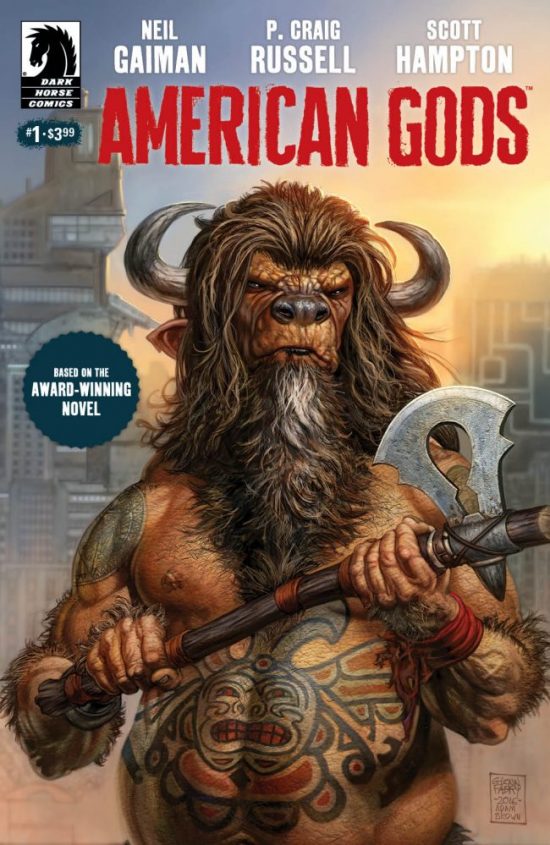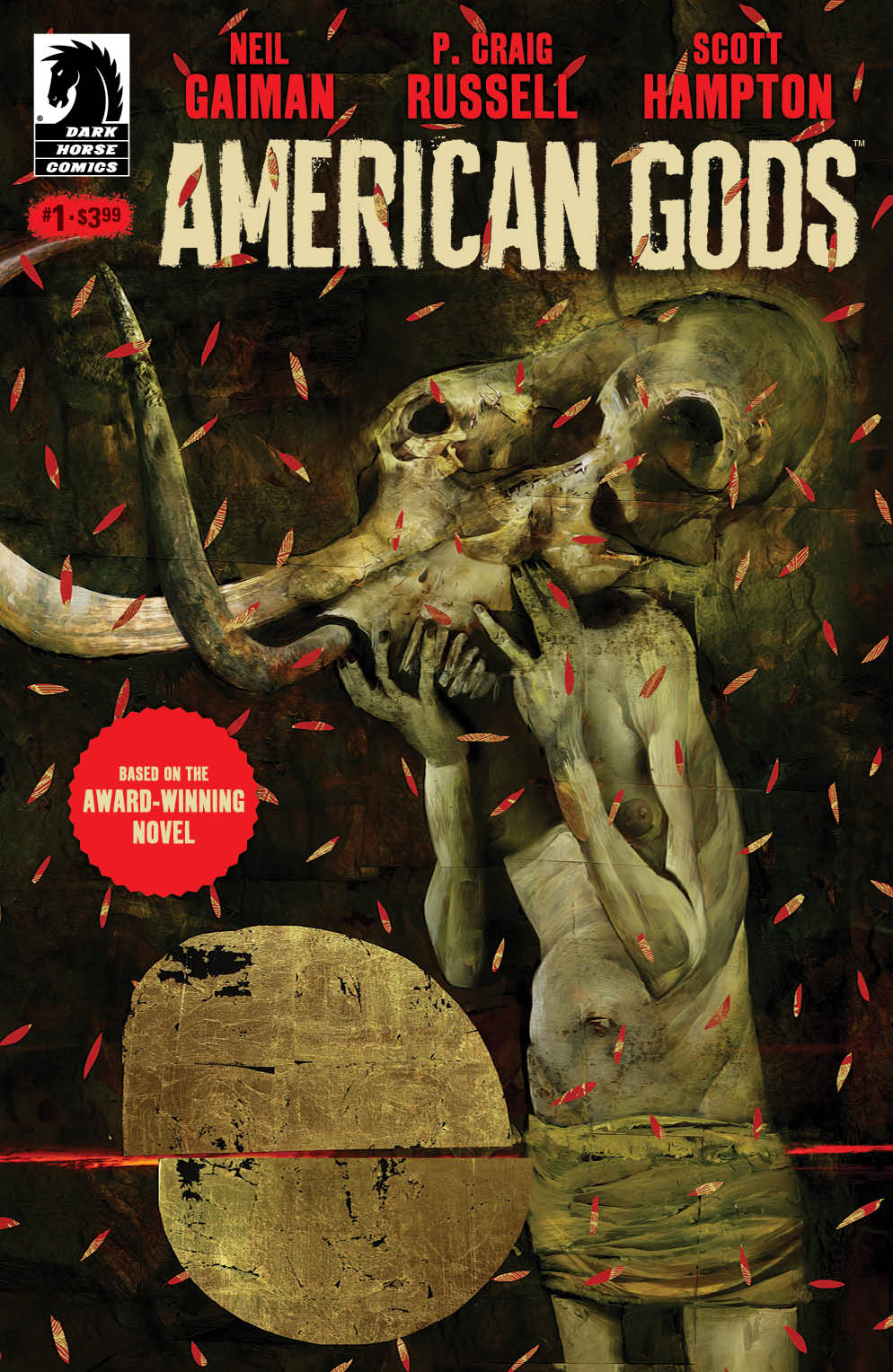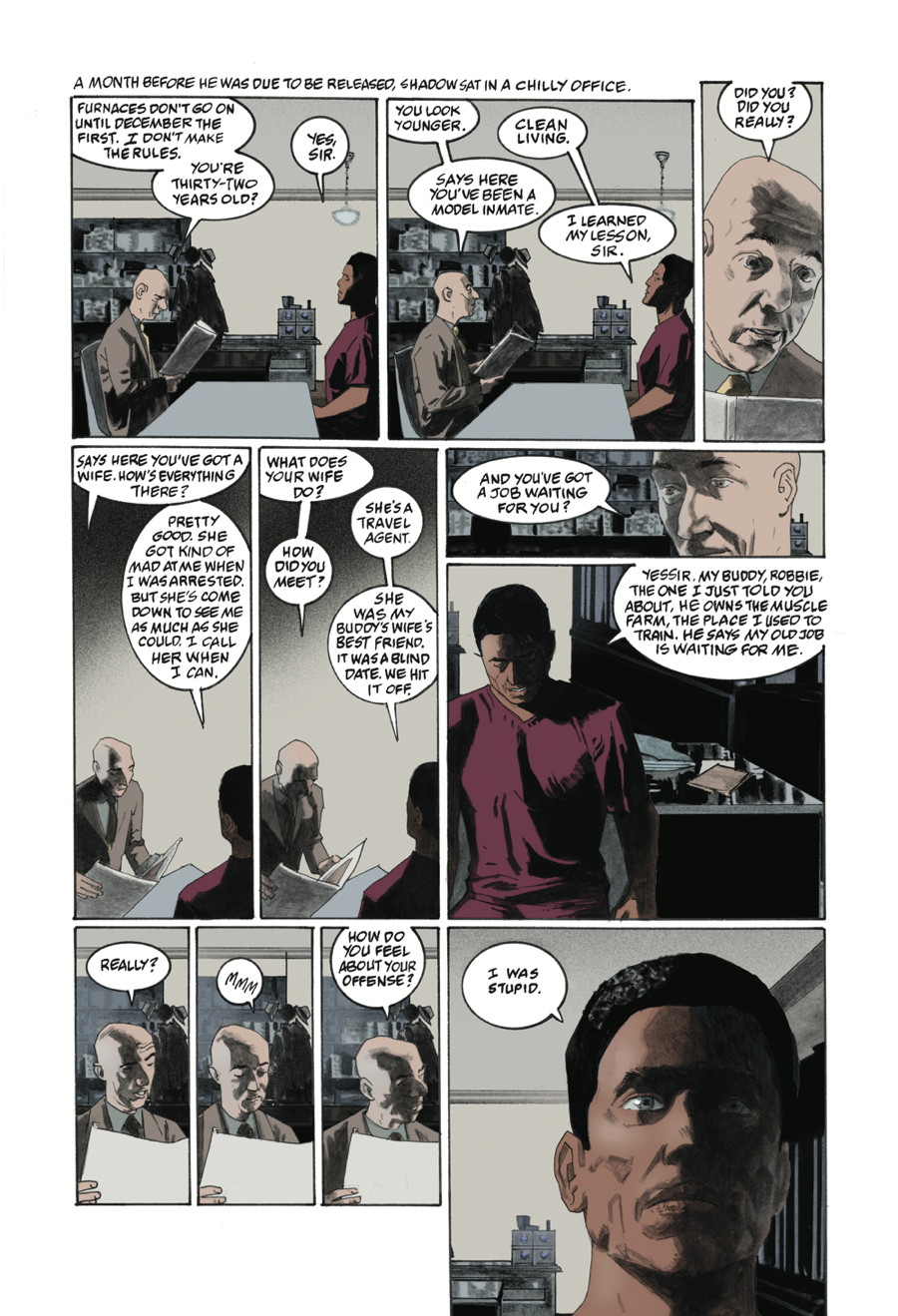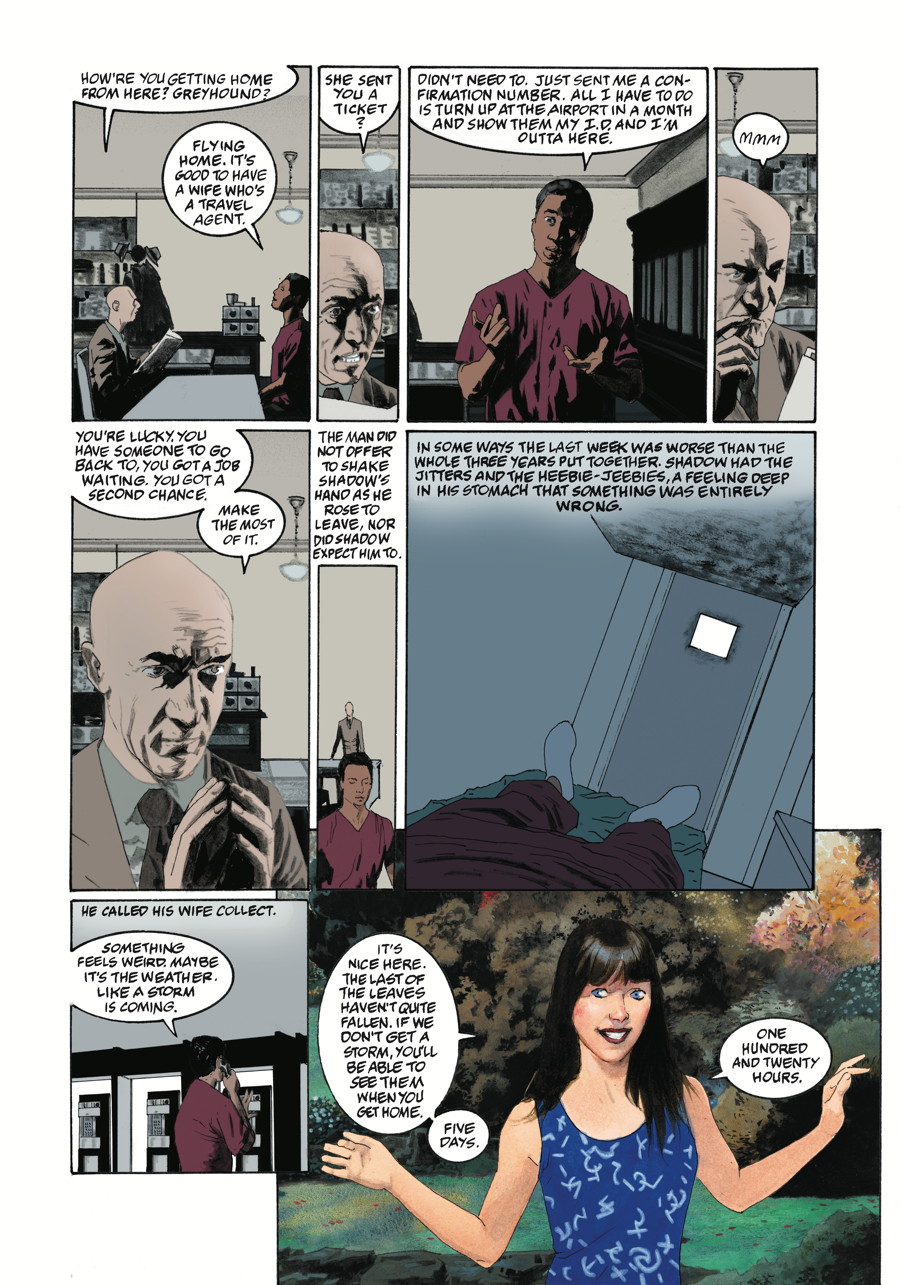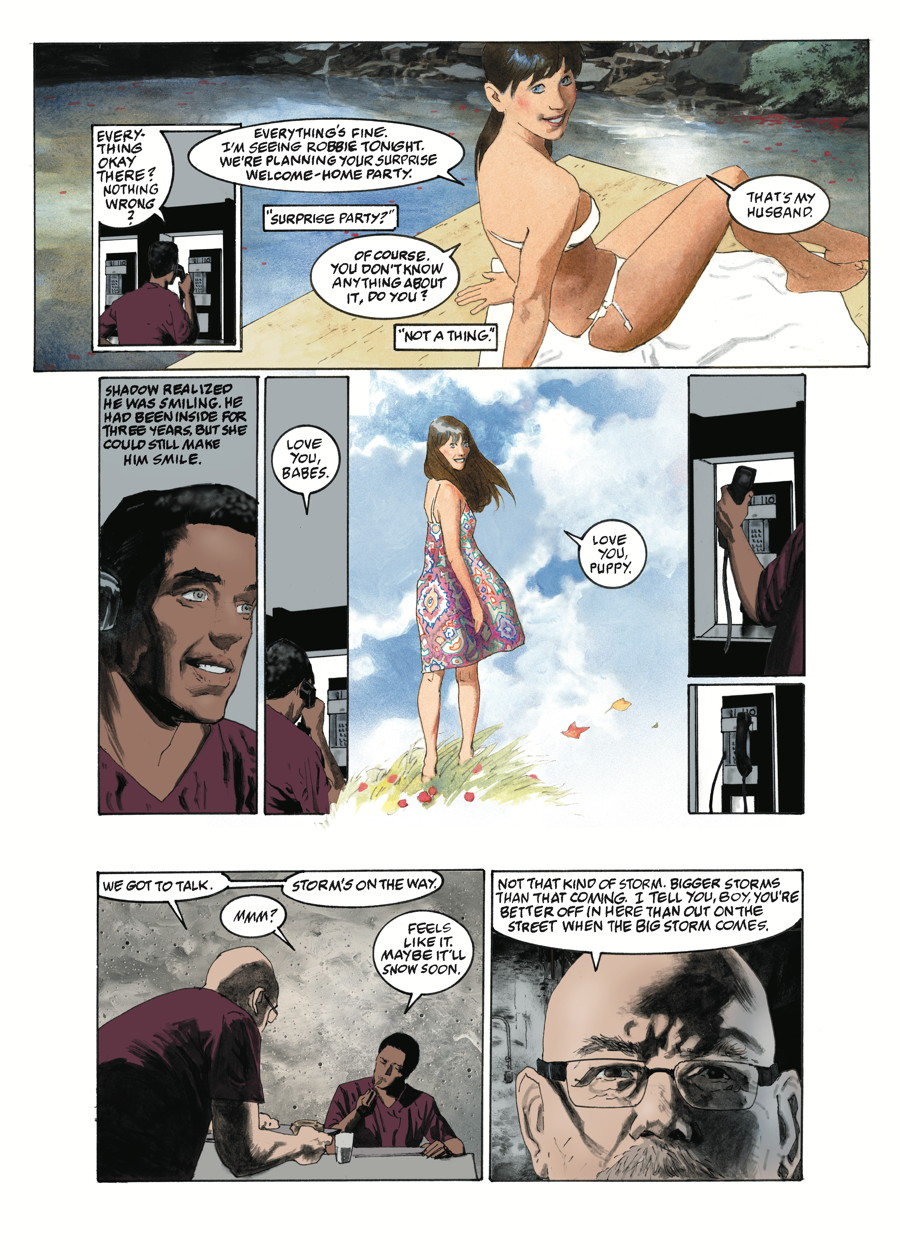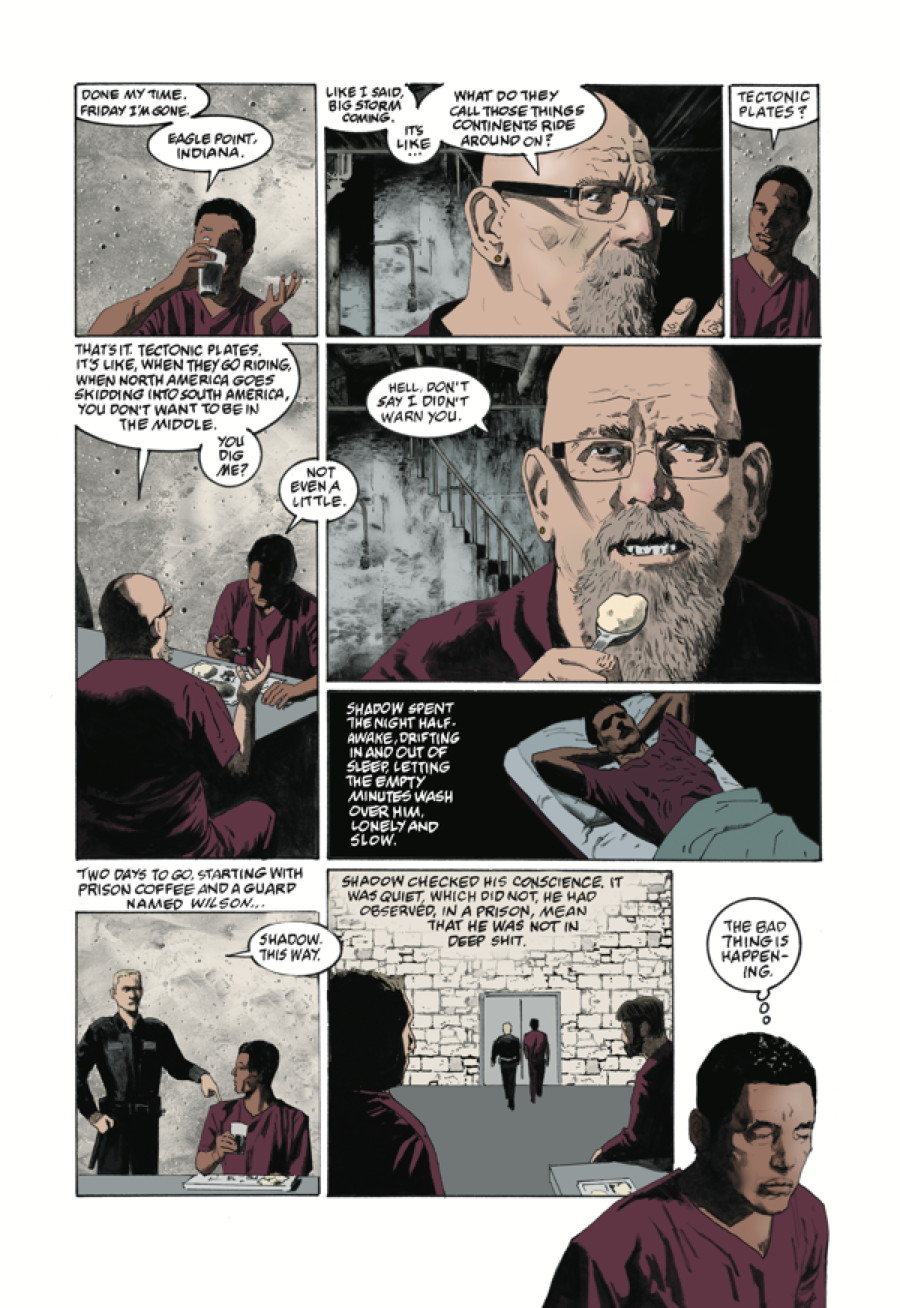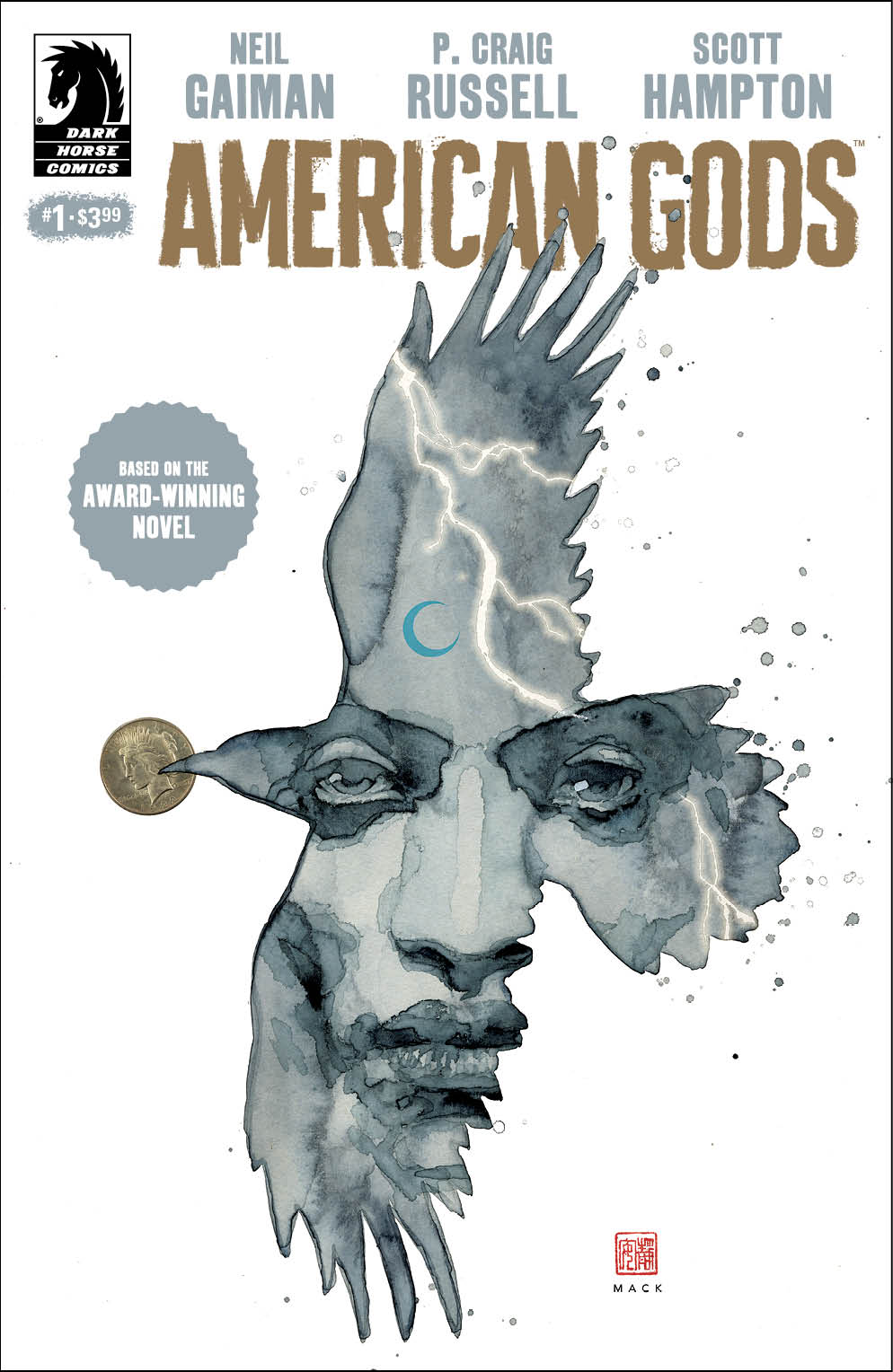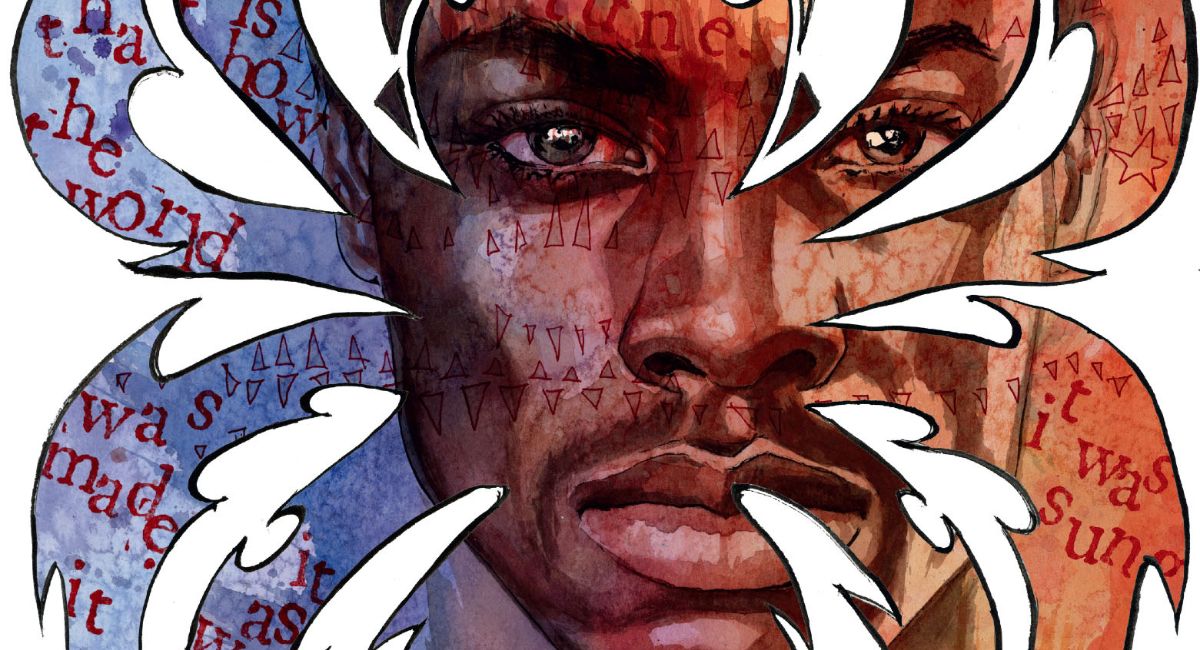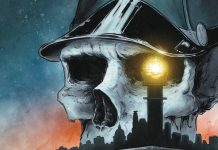Neil Gaiman is one of those once in a millennia creators, much like Shakespeare, whose work is thought-provokingly complex yet interpretable on multiple levels. P. Craig Russell is one of those creators whose made an artform out of translating cherished works to the comic book medium.
The man who brought Coraline and Night Music to comic book form is bringing Neil Gaiman’s novel, American Gods, to Dark Horse in a new series of comics. We talked with Russell how to make a career out of translation.
COMICS BEAT: Throughout the longevity of your career in comics, you’ve adapted and collaborated with Neil Gaiman on many projects. What was it about American Gods specifically that appealed to you to take on adapting it for comics?
P. CRAIG RUSSELL: As always my only desire in doing an adaptation of a novel, short story, or opera is in the quality of the writing. Is it a good story with sharp dialogue? That’s all I’m looking for. That means most anything Neil puts in front of me will spark my interest.
CB: The American Gods novel was an illuminating look at how things we once thought about as mere modern conveniences have so much of our attention they’ve essentially become our modern deities. Starz TV adaptation nearly follows the novel beat-by-beat through the first two episodes. When it comes to the comic, will we get a straight translation of one medium to another or will you take some liberties?
PCR: There are two poles of adaptation. One can be very faithful to the source material, or one can treat the source as raw material to be substantially reworked. Kubrick’s The Shining is an example of that. Sometimes it improves on the material, other times you end up wondering why they even bothered with something they had so little understanding or appreciation of. I’m of the faithful camp in my adaptation of an existing work. This doesn’t mean one is only cutting out chunks of copy and sticking them with an image. There’s a great deal of artistry in finding a visual structure that illumines and comments on the story. There are any number of images in my adaptations of Neil’s stories that you won’t find if you go back into the prose and look for them. One can be faithful and still know that it’s not enough to simply illustrate the events in the story. You need to bring a personal sensibility to it.
CB: You’ve done some out of the box adaptations such as operas by Strauss and works of Oscar Wilde. When you read a book, catch a play, or listen to music; what clicks with you that lets you translate these different languages into comics?
PCR: The only ‘click’ is that visceral response that lets me know I want to handle this work as a graphic story. After that it’s not clicking, it’s digging. Digging to find visual solutions to decidedly non-visual events, the constant attempt to show instead of state. I always look around to see what props in a scene I have to work with. An empty bed, a blankly staring puppet, a burning candle, an extinguished candle. Anything that might comment on or illuminate a situation or character’s state of mind.
CB: Is there something still out there you’d like to do an adaptation of?
PCR: There are many things I’d like to do. I have a 32-page adaptation of The Fall of the House of Usher all laid out, sitting in a drawer. I’d love to do another H.P. Lovecraft story, another opera, a fairy tale of George MacDonald. For sure I’ll be doing the final Oscar Wilde fairy tale, The Fisherman and His Soul next year.
CB: I’m enjoying the artistic touches of Scott Hampton’s work in the first issue. What was behind the decision to have you script and layout the book as opposed to fully illustrating it?
PCR: Two things. I don’t feel like taking on a 598-page graphic novel. It took me five years to do the 400 page Ring of the Nibelung (albeit along with inking 300 Star Wars pages). Secondly, while there is a lot of the other-worldly and phantasmagoric in American Gods there is even more of the mundane reality of cheap motels, city buses, restrooms, automobiles, restaurants, etc. I get no kick from drawing those things. I can if I have to, of course, but I don’t look forward to it. I’m much happier laying out a page and indicating ‘city bus goes here’.
CB: American Gods is over fifteen years old now, but in many ways it reads as though it could have been written yesterday. When you reflect on the original story and think about our world today, do you see anything that’s arisen over the past decade that would be a new god today?
PCR: Selfies. We’re all Gods now.
CB: Ha! Add a character called “The Gram”.
I saw you have the adult coloring book coming after a successful Kickstarter campaign, but is there anything else we can expect to see from you in the near future?
PCR: I have a thirty pager waiting for me of Neil’s short story The Problem of Susan which I’m anxious to get to. I did the script and layouts several years ago and editors are getting antsy about it. Also, as I said before, my final Oscar Wilde fairy tale. Beyond that, I have plans but like to keep those to myself until I get right up on them.
CB: Fair enough. As long as I know there is more P. Craig Russell on the way then I’m happy. You can be happy too, once you get your hands on the comic book adaptation of American Gods on March 15. Dark Horse, cause I know you’re listening. I hate paying extra for variants so send over one of those David Mack covers that, no disrespect to Glenn Fabry’s awesome work, we all need.
American Gods: Shadows #1
Neil Gaiman (W), P. Craig Russell (W/A), Scott Hampton (A/C), Glenn Fabry (Cover), David Mack (Variant cover), and Dave McKean (Variant cover)
On sale Mar 15
FC, 32 pages
$3.99


